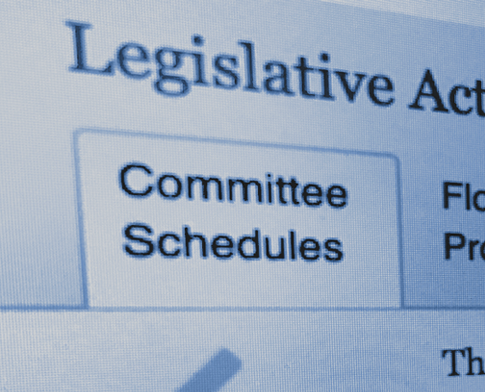Health Update (March 16)
As the World Health Organization (WHO) officially declared the Coronavirus outbreak as a global pandemic, lawmakers on Capitol Hill remain in Washington in an attempt to secure a large emergency bill that would include provisions such as guaranteed food access, affordable testing, and paid time off for those impacted by the virus. As of early Friday (Mar. 13), the White House and Speaker Nancy Pelosi (D-CA) remain in talks and are close to securing a deal.
In other news surrounding the Coronavirus outbreak, the House Appropriations Committee held a hearing on Tuesday (Mar. 10) with CDC Director Dr. Robert Redfield. Committee members grilled Redfield on the Trump Administration’s lack of providing enough tests to identify the coronavirus before infections could be passed on and significant delays getting test results.
Also, Assistant to the President, Joe Grogan, published an op-ed that outlined what Congress needs to do in order to pass drug pricing legislation that would coincide with White House priorities.
Coronavirus
Pelosi, Mnuchin Near Deal
An emergency bill on the coronavirus outbreak remains on track to be passed by the House, but has been slowed down by last-minute nervousness — including uncertainty over whether it has the full backing of President Donald Trump.
Speaker Nancy Pelosi (D-CA) assembled her leadership team Friday morning after a long night of negotiations with Treasury Secretary Steven Mnuchin on the aid package, which would guarantee access to food, affordable testing and paid time off for people whose lives are disrupted by the virus.
Pelosi spoke by phone with Mnuchin — the lead negotiator for the White House — earlier Friday (Mar. 13) morning, as the two sides scramble to resolve lingering issues, specifically a provision on how much, and for how long, affected workers would receive paid time off.
Trump tweeted on Friday (Mar. 13) that Congress should pass a payroll tax cut, something that is not part of the current package. Congressional leaders have said it could be part of a third package, but that would likely not be taken up for several weeks.
Democratic and White House officials, however, have remained steadfast that they will strike an accord that will deliver vast economic relief to suffering individuals families while expanding access to key health measures that they hope will help contain the spread of the virus.
The House still plans to pass the package sometime on Friday, with hundreds of members holding out in their mostly empty offices — with many staff opting to telework — as they await an announcement from party leaders. [1] The Senate is expected to follow suit early next week.
Biden Releases Plan to Combat Coronavirus
Former Vice President and 2020 Democratic Presidential Candidate Joe Biden rolled out his plan to combat the COVID-19 coronavirus on Thursday as it rapidly spreads throughout the United States.
Biden’s plan calls for a number of measures, including the establishment of an effective national response to the virus through making testing free and widely available, as well as the establishment of 10 mobile sites and drive-thru facilities per state.
The former vice president also called on greater transparency from the White House in terms of how many individuals have been tested.
The plan also called for an economic response to the outbreak, which includes emergency paid leave for all those affected by the outbreak. The response would also work to aid workers, families and small businesses affected by the outbreak.[2]
A link to the full outline of the plan can be found here.
Hearings & Markups
House Energy & Commerce
The House Energy & Commerce Health Subcommittee held a markup on Wednesday, March 11 on 13 different bills.
All of the bills moved through the House E&C Health Subcommittee markup on Wednesday (March 11) moved swiftly through to the full committee without much back-and-forth. HR 5668, the MODERN Labeling Act, HR 4866, the National Centers of Excellence in Continuous Pharmaceutical Manufacturing Act of 2019, and HR 5534, the Comprehensive Immunosuppressive Drug Coverage for Kidney Transplant Patients Act all received considerable attention during the chair and ranking member opening statements.
Ranking Member Michael Burgess (R-TX) focused his attention on HR 5534, the Comprehensive Immunosuppressive Drug Coverage for Kidney Transplant Patients Act, where he highlighted that the bill extends Medicare coverage for immunosuppressive drugs past the current 36-month limit and will give significant relief to those suffering from ESRD.
Chairwoman Anna Eshoo (D-CA) noted that all of the bills considered to improve the drug supply chain are a topline priority. She mentioned that an overwhelming number of drugs that Americans take are generics and are manufactured outside of the country and that we have to bring that manufacturing back to the United States.
An executive summary of this markup can be found here.
House Appropriations
On Tuesday (March 10), the House Appropriations Committee held a hearing on the CDC Budget for FY 2021. During the hearing, members of the committee had very direct questions for CDC Director Dr. Robert Redfield on the lack of tests to identify the coronavirus and significant delays getting test results.
Rep. Jaime Herrera Beutler (R-WA) said people in her home state, which has been hit the hardest from the outbreak, have experienced long delays in receiving their test results and asked Redfield about inadequate testing capacity.
Redfield said nearly 5,000 people have been tested through public health labs as of Monday (Mar. 9), adding he anticipated that commercial testing companies would have stepped forward earlier to work with the federal government to develop more tests. Redfield said commercial labs like Quest and LabCorp have dramatically increased testing capabilities while acknowledging that public health labs in Washington are overwhelmed.
The vulnerability of nursing home patients, the lack of data from China, and the importance of innovation were also major issues brought up during the hearing. Rep. Andy Harris (R-MD) mentioned that HR 3 would stall innovation and we likely wouldn’t have access to these potential vaccines to COVID-19 if the bill were to pass.
An executive summary of this hearing can be found here.
References
[1] Ferris, Sarah. “Pelosi and Mnuchin near deal on massive coronavirus relief package.” Politico Pro. 13 Mar. 2020. https://subscriber.politicopro.com/article/2020/03/pelosi-and-mnuchin-near-deal-on-massive-coronavirus-relief-package-1893281
[2] Manchester, Julia. “Biden rolls out plan to combat coronavirus.” The Hill. 12 Marc. 2020.https://thehill.com/homenews/campaign/487278-biden-rolls-out-plan-to-combat-coronavirus?__twitter_impression=true
[3] Grogan, Joe. “White House Principles for Reducing Drug Costs.” Wall Street Journal. 10 Mar. 2020. https://www.wsj.com/articles/white-house-principles-for-reducing-drug-costs-11583850048
HOUSE.GOV
The Week Ahead
For the main events of the next week and more, go straight to the key events on the house.gov website.
SENATE.GOV
The Week Ahead
For the main events of the next week and more, go straight to the key events on the senate.gov website.


